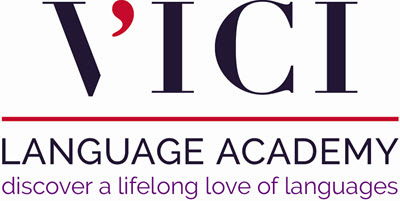I was at an event recently where a representative from another language school boasted that they “only employ native speakers”.
As I listened, I tried not to let the internal grimace I felt show on my face.
I’m a native English speaker; I’m the manager of a language school and I also teach English as a foreign language. You might, therefore, be surprised to hear that *I don’t believe that native is best!*
While native speakers undoubtedly have an innate grasp of the language, a deep cultural understanding, and an intuitive sense of idiomatic expressions, being a native speaker alone does not guarantee effective teaching.
Teaching a language requires more than just being a native speaker; it demands a thorough understanding of language mechanics, teaching methodologies, classroom management techniques, and language acquisition theories.
Native speakers – with the appropriate training – can, and often do, make amazing language teachers. But it’s not being a native speaker alone that makes someone the right fit to lead a classroom and foster language learning.
Many language learners can relate to the frustration of asking a native speaker why they say something, only to receive a vague response like “It’s just the way it is..”
This common experience highlights a crucial distinction – while native speakers may excel at using the language, an untrained native speaker may lack the formal knowledge of grammar rules necessary for effective teaching. On the other hand, non-native speakers, who have undergone the process of learning the language themselves, often possess a deep understanding of grammar concepts and can articulate them in a way that resonates with learners.
The question of “who makes the best teacher” should not be about native or non-native status, but rather about prioritising teachers who possess the necessary skills, experience, and dedication to empower learners to achieve their language goals.
Each learner is unique, as is each learning context. Recognising learners’ communicative objectives, and ensuring that the teacher aligns with those objectives, is always going to be better than a blanket rule of “we only hire native speakers.
So, who makes the best teacher?
It depends: on the learner, the learning context, and the communicative objectives of the learner.
As the manager of a team of over 30 language teachers, I carefully analyse each client’s needs to select the most suitable language trainer for them.
Sometimes myself, or other natives on my team, are not the best fit for the student.
Let’s take a real-life case that I deal with frequently: a client who needs to learn corporate English for effective on-the-job communication. In this case, a non-native speaker with industry-specific expertise and language proficiency is better equipped to teach corporate English than a native speaker without relevant professional experience. Being a native speaker doesn’t automatically mean you understand industry-specific jargon or the linguistic needs of a particular sector.
It’s time to shift our focus from the misconception that “native is always best” and recognise that effective language teaching transcends native proficiency.

